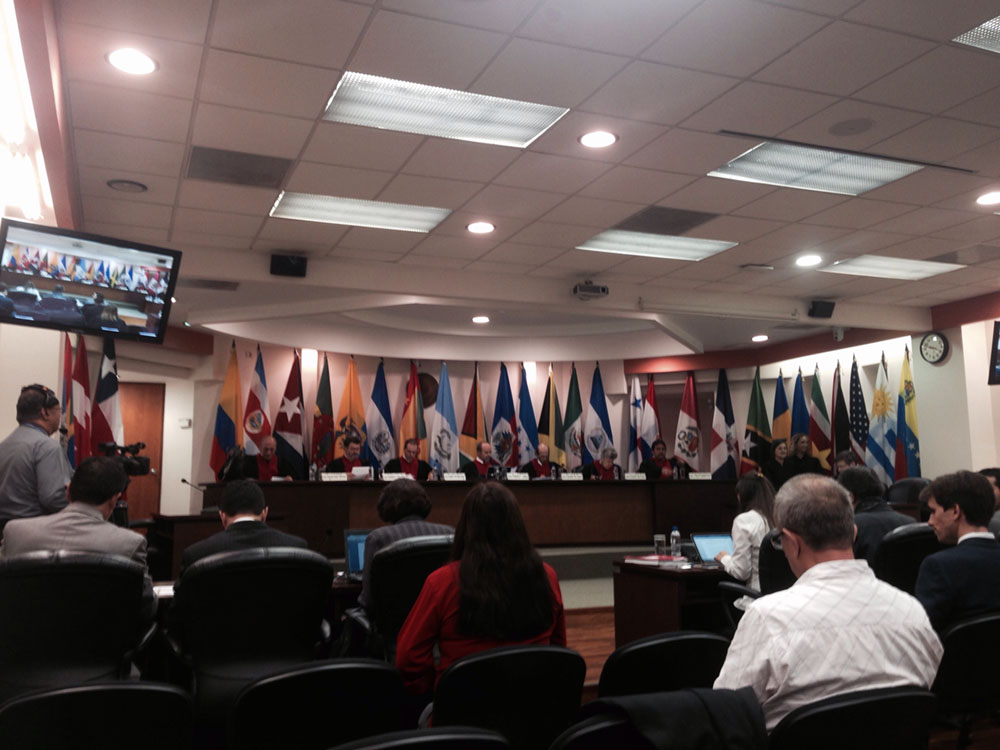By Britton Schwartz, Clinical Fellow
Santa Clara’s International Human Rights Clinic (the Clinic), in partnership with the International Justice Resource Center (IJRC), has submitted an amicus curiae brief to the Inter-American Court of Human Rights in a case of first impression involving forced sterilization. The case, I.V. vs. Bolivia, represents the first time the regional human rights court will address forced sterilization as a human rights violation, and it may set an important precedent to address what unfortunately remains a widespread practice, particularly against disabled women, women living with HIV/AIDS, and women from other marginalized groups.
According to a report by the Inter-American Commission on Human Rights on the case, doctors in a Bolivian public hospital sterilized a low-income Peruvian refugee without her consent immediately after delivering her daughter via caesarean section. The victim did not discover that she had been sterilized until the next day. As the brief argues, the case represents a crucial opportunity for the Inter-American Court to develop international human rights law in a direction that is more protective of women’s rights and that recognizes the particularly grave violation of human rights that forced sterilization produces.
Three Clinic students worked on the brief over the past year – Brittany Delbridge, Erica Sutter, and Claudia Vanesa Echeveste. Ms. Delbridge highlights the collaborative nature of the work as a positive learning experience, noting that
While working on the I.V. amicus I learned so much about collaborative lawyering skills and how to strike the right balance between compromise and sticking to your guns. I was able to both observe and participate in this process, proffering my own suggestions and absorbing how our clinic director and our partner organization director negotiated the theme, content and technical edits for our brief. I also gained valuable insight into researching a relatively new field in international human rights and the challenges that poses for attorneys. We were able to get creative with our approaches and really use the collaborative spirit to find our perfect pitch. Overall, working on the amicus was an incredible and holistic learning experience that taught me about collaborative lawyering, legal research and writing.
Brittany Delbridge
Ms. Echeveste traveled to the Inter-American Court’s headquarters in San José, Costa Rica to attend the hearing in the case. According to Ms. Echeveste,
Being able to attend the I.V. vs Bolivia hearing at the Inter-American Court was a very educational experience. I was able to hear and meet the victim – I was impressed by her strength and willingness to talk about the very sensitive issue she suffered 16 years ago in front of a big audience. I had the opportunity to meet the parties’ attorneys and also hear their arguments along with the government’s. I.V.’s attorneys were very thankful that we were there supporting them. After the arguments, the judges’ questions and comments about the case helped us to identify the legal issues they were the most concerned about and also to gather more information that was later added to our amicus. I learned a lot from participating in this project, especially the writing part and how to organize the research to structure the amicus draft. It was very positive to be part of a great team.
Claudia Vanesa Echeveste

Photo credit: Claudia Vanesa Echeveste
Ultimately, the brief urges the Inter-American Court to seize this unique opportunity and develop a clear conceptual framework on forced sterilization as an autonomous and complex human rights violation of the rights to personal integrity, dignity, freedom of expression, private and family life, and to be free from discrimination and from acts of violence against women. Additionally, the brief encourages the Court to elaborate on training of medical personnel as a form of reparation and guarantee of non-repetition in the present case. The full brief is available in English and Spanish.